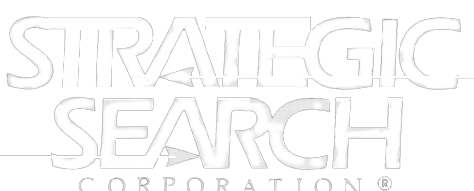
Engineering job recruiting continues to climb with more jobs than qualified engineers to fill them. Additionally, the U.S. Labor Department trumpeted another record with the 105th straight month of jobs creation and 224,000 jobs produced. However, a lot more effort should be made to educate and train competent engineers for the future, which will generate even more high paying jobs!
This report is in direct contrast to Mark Cuban’s dire warning. Cuban claims artificial intelligence (AI) will replace the need for engineering talent and degrees. I disagreed with his assessment during a media appearance aired on CBS Radio affiliate WBBM News Radio 780 this past Thursday, May 30, 2019 and hosted by Rob Hart. Please click here to listen to my segment in its entirety.
Unfortunately Many Engineers Lack Interview And Resume Skills
Engineering talent will not shine through to impress prospective employers unless individual engineers make themselves glow. Candidates must know how to effectively convey their engineering talents both: a) in their resumes and b) during the all-important interview hiring process.
Engineers need to realize that their resume and interview are both critical steps in the hiring process. Furthermore, both need to be “sales” oriented.
10 Tips To A Successful Engineering Resume
A well-developed engineering resume is the key to generating successful engineer job interviews. Human Resources (HR) or an artificial intelligence program will screen out a poor resume. Therefore, here are 10 tips to develop a solid resume:
1. It’s OK to use more than one page.
A resume no longer needs to fit on one page as it used to in the past. Yes, it should be short and concise and include a certain minimum amount of information. But you also need to use the appropriate amount of space to catch people’s attention and differentiate yourself from other applicants.
2. Be clear about your experience.
You want the reader to easily find your experience and skills, so it’s important to list these clearly. Consider listing the projects you’ve worked on at a company and then supply the details about what your role was in those projects. Try to showcase your problem-solving skills in these sections. Also add quantitative accomplishments (e.g. money saved during a project).
3. Avoid errors.
This should be obvious, but it’s absolutely of the utmost importance to keep your engineering resume error free. Don’t check it once, or even twice. Recheck it multiple times, especially after making any changes no matter how small.
Ask someone to review it for you, as a new set of eyes will often catch something you missed. Engineers are known to be detail oriented so a small mistake on an engineering resume could make the difference between you and another candidate.
4. Prioritize your professional experience.
College degrees simply don’t hold the same weight as professional experience, especially in the engineering field. While it may be necessary to have a degree for the role, you should still list them after your professional experience. This is also not the place to put your student jobs. Only list those jobs that are relevant to an engineering position.
5. Use your own project if you’re lacking experience.
Recruiters understand it’s possible that you don’t have any professional experience as of yet. Or you may have gaps in the timeline of professional experiences on your engineering resume.
You can fill that lack of experience or gaps with learning experiences you might have gotten from your own do-it-yourself projects. Create something from scratch and showcase how you made it through each step. Highlight any lessons learned from the exercise.
This will show readers that you’re motivated and passionate about your work. It might just place you above the competition.
6. Include your skills.
You also need to be very explicit about the skills you have, including hardware, software and any programming language (e.g. C++ or MATLAB). Provide a quick summary of what you can bring to the table with these skills.
7. Use relevant industry terms.
It’s important to avoid technical jargon the reader might not know. However, you still want to showcase your familiarity with the latest industry advancements or tools. Include these only if they apply to the position you’re applying for. You should also update them periodically as new designs or fields (of devices) are created.
8. Use the active voice.
While we’re on the subject of words, it’s important to use action words. Stay away from passive terms. Hiring managers will look for words that show initiative and leadership. Look online for great words to use in resumes and be sure to include them. These include options like leading a team, managing a project or conducting research. They show strength and action. So consider updating your resume to include more of these.
9. Be positive.
It should go without saying that your resume should highlight the positive aspects of your life and career. Do not explain failed projects, why you left an old position or anything else negative. Try to write in a way that showcases your passion for the work and how you can contribute hard and soft skills to a new position.
10. Review regularly.
The final step is to regularly review and update your engineering resume. It can be easy to forget what you’ve done. This may lead to information gaps. So set yourself a regular project reminder. Review your resume a few times a year and update it accordingly.
Guide To Million Dollar Engineer Interviews
Strategic Search Corporation focuses on worldwide engineering recruitment. As a result, we developed a special tool to help our engineer candidates stand out during their job interviews. The Real Benefit Exercise helps you better sell and market yourself during job interviews.
We studied top salespeople extensively to determine the exact skills they used to close deals. Then we extracted those sales behaviors. One example is the mantra: Sell, Sell, Sell. What this means is every chance you have you want to sell yourself as a solution to the hiring company’s needs.
There are many more offerings in this wonderful tool. The key is we adapted them to the needs of engineering talent who may lack sales acumen. We only recommended those sales skills that were easiest to replicate during the interview process.
Employers Can Rely On Our Recruiting Team
As a result, when employers recruit engineering talent including an engineer, engineering manager, Director of Engineering or Vice President of Engineering from Strategic Search Corporation, your staffing team will know that these candidates will be well prepared for your interviews. They will more quickly share relevant job information that is best needed for your company’s success.
Call me today at 312-944-4000 to discuss how we can assist with your engineering recruiting and staffing needs. Or click here for my full contact information.



